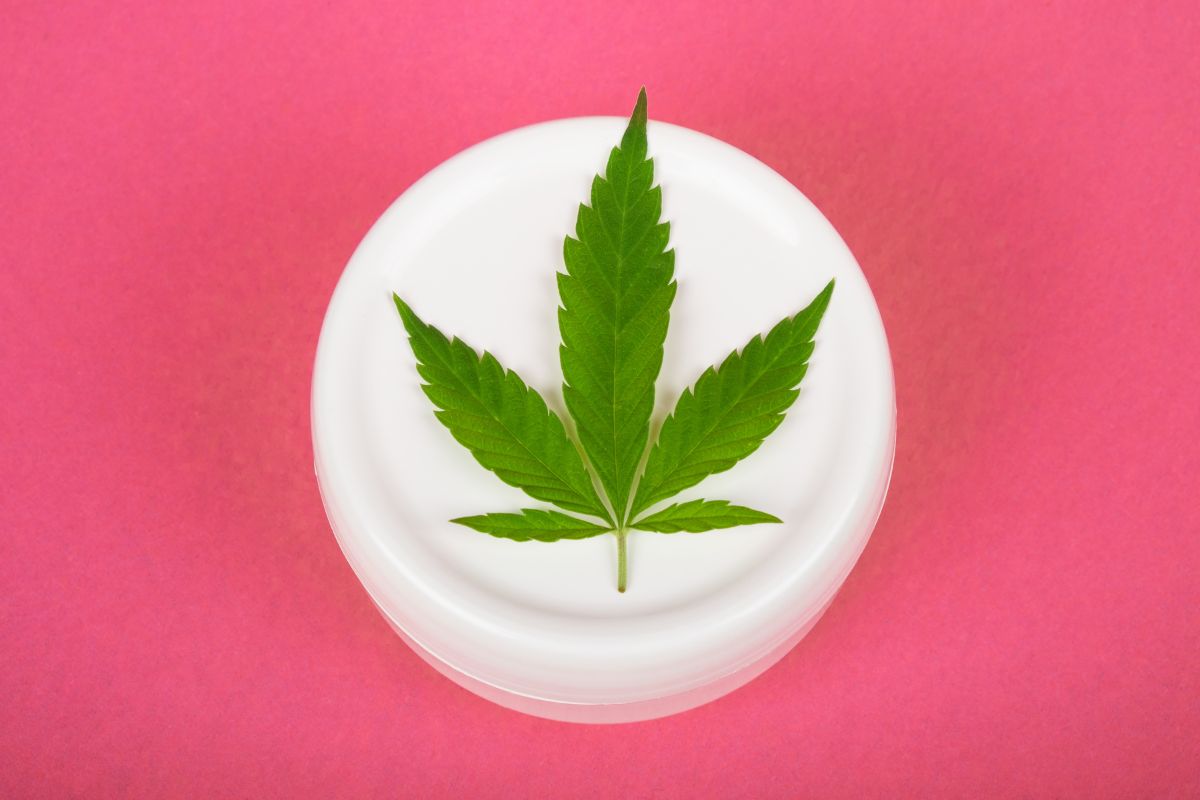Cannabis, often associated with the characteristic “high” it produces, is a complex plant with diverse effects on the human body and mind. To understand cannabis beyond its recreational use, we need to delve into the science behind its effects. This article will explore how cannabis interacts with the body, its potential therapeutic benefits, and the importance of responsible use. We will also include expert insights to provide a comprehensive and engaging look at this fascinating plant.
The Role of the Endocannabinoid System
The effects of cannabis are primarily caused by cannabinoids, like THC (tetrahydrocannabinol) and CBD (cannabidiol), interacting with the body’s endocannabinoid system. Dr. Sarah Linn, a neuroscientist and cannabis researcher, explains, “The effects of cannabis are primarily caused by cannabinoids, like THC and CBD, interacting with the body’s endocannabinoid system, a network of receptors that influence mood, pain, and memory” (Source: Dr. Sarah Linn – University of Oregon).
Cannabinoid Receptors: CB1 and CB2
The endocannabinoid system consists of two main types of receptors: CB1 and CB2. CB1 receptors are predominantly found in the brain and central nervous system, while CB2 receptors are primarily located in the immune system and peripheral organs. THC binds to CB1 receptors, producing the psychoactive effects associated with cannabis use, such as euphoria and altered perception. CBD, on the other hand, interacts with both CB1 and CB2 receptors but does not produce intoxicating effects.
THC and CBD: The Dynamic Duo
While THC and CBD are both cannabinoids, they have distinct effects on the body. Dr. Ethan Russo, an ethnopharmacologist and cannabis researcher, notes, “While THC is the psychoactive component responsible for the ‘high,’ other cannabinoids like CBD offer potential therapeutic benefits without intoxication” (Source: Project CBD – Ethan Russo, MD).
THC: The Psychoactive Component
THC is the compound that gives cannabis its psychoactive properties. It can alter mood, perception, and cognitive function. Some users find these effects enjoyable and beneficial for relaxation and creativity. However, high doses of THC can lead to anxiety, paranoia, and impaired motor skills.
CBD: The Therapeutic Powerhouse
CBD is non-psychoactive and is praised for its potential therapeutic benefits. Research suggests that CBD may help manage anxiety, chronic pain, inflammation, and even some neurological conditions. A meta-analysis of randomized controlled trials on the efficacy of CBD for anxiety disorders found that it can significantly reduce anxiety symptoms (Source: University Medical Center).
Factors Influencing Cannabis Effects
The effects of cannabis can vary widely depending on several factors. Dr. Melanie Duarte, a clinical psychologist and medical cannabis specialist, explains, “The effects of cannabis can vary depending on factors like the strain, dosage, and individual biochemistry. Understanding these factors is crucial for safe and effective use” (Source: Dr. Melanie Duarte – California Cannabis Therapy Institute).
Strain and Cannabinoid Profile
Different strains of cannabis have varying levels of THC, CBD, and other cannabinoids. For example, Indica strains are often associated with relaxing effects, while Sativa strains are linked to more energizing effects. Hybrid strains combine characteristics of both.
Dosage
The dosage of cannabis significantly impacts its effects. Lower doses of THC might produce mild euphoria and relaxation, while higher doses can lead to more intense psychoactive effects and potential adverse reactions.
Individual Biochemistry
Individual differences in biochemistry, including genetics and tolerance levels, play a role in how cannabis affects each person. Some individuals may experience strong effects with small doses, while others may require higher doses to achieve the desired effects.
Therapeutic Benefits of Cannabis
Research on the therapeutic potential of cannabis is ongoing, with promising results for various conditions. Dustin Selitto, PhD, a cannabis pharmacologist, highlights, “Research on the therapeutic potential of cannabis is ongoing, with promising results for managing chronic pain, anxiety, and even some neurological conditions” (Source: American College of Neuropsychopharmacology – Dustin Selitto, PhD).
Chronic Pain Management
Cannabis has shown potential in managing chronic pain, particularly through the use of CBD and THC. A double-blind placebo-controlled clinical trial by a research consortium focused on pain management found that both THC and CBD can significantly reduce chronic pain symptoms (Source: Research Consortium).
Anxiety and Stress Relief
CBD is particularly noted for its anxiolytic properties. Many users report feeling calmer and more relaxed after using CBD products. This can be particularly beneficial for individuals with anxiety disorders.
Neurological Conditions
Emerging research suggests that cannabis, particularly CBD, may help manage symptoms of neurological conditions like epilepsy and multiple sclerosis. The FDA-approved drug Epidiolex, which contains CBD, is used to treat certain types of epilepsy.
Personal Experience: Exploring the Effects of Cannabis
My journey with cannabis began out of curiosity and a desire to manage stress naturally. I started with CBD oil, as I was hesitant about the psychoactive effects of THC. The first thing I noticed was a subtle sense of calm that helped me manage my anxiety without feeling intoxicated.
After becoming comfortable with CBD, I decided to try a balanced THC-CBD product. I was initially nervous about the psychoactive effects, but I was pleasantly surprised. The THC provided a mild euphoria that enhanced my mood and creativity, while the CBD kept me grounded. This combination became my go-to for unwinding after a long day.
Potential Risks and Considerations
While cannabis offers potential benefits, it is not without risks. Iñaki Sanz-Santiago, PhD, a neuroscientist and cannabis researcher, cautions, “Long-term cannabis use, particularly at high doses, may have potential negative effects on brain development in adolescents and young adults. More research is needed to understand the long-term impact” (Source: University of Basque Country – Iñaki Sanz-Santiago, PhD).
Cognitive Effects
High doses of THC can impair cognitive function and motor skills. This is particularly concerning for adolescents and young adults, as their brains are still developing. Long-term heavy use can also lead to dependency and negative effects on mental health.
Mental Health
Cannabis can exacerbate symptoms of anxiety and paranoia in some individuals, particularly with high THC strains. It’s important to start with low doses and gradually increase to find a comfortable level.
Responsible Use
David Nutt, MD, a neuropsychopharmacologist, emphasizes the need for responsible use: “Cannabis is not a single drug; it’s a complex plant with a range of potential benefits and risks. Responsible use and evidence-based regulations are crucial for maximizing benefits and minimizing harms” (Source: Imperial College London – David Nutt, MD).
The Future of Cannabis Research
The scientific community continues to explore the potential benefits and risks of cannabis. Long-term studies are needed to fully understand the impact of cannabis use on health and well-being. Researchers are also investigating the effects of different cannabinoids and the therapeutic potential of cannabis for various medical conditions.
Developing Evidence-Based Regulations
Creating evidence-based regulations for cannabis is essential for ensuring its safe and effective use. A study titled “Developing Evidence-Based Regulations for Cannabis: A Comparative Analysis of Regulatory Models from Different Countries” highlights the need for comprehensive regulations that protect public health while allowing access to therapeutic benefits (Source: University Law School).
Conclusion: Understanding Cannabis Beyond the Buzz
Cannabis is a complex plant with a wide range of effects and potential benefits. Understanding the science behind its effects, the role of the endocannabinoid system, and the factors influencing individual experiences can help users make informed decisions. While cannabis offers therapeutic potential, responsible use and ongoing research are crucial for maximizing its benefits and minimizing risks.
Final Thoughts
As the legal landscape around cannabis continues to evolve, staying informed about its effects and potential benefits is more important than ever. Whether you are considering cannabis for therapeutic use or exploring its recreational potential, understanding the science behind the buzz can help you make responsible and informed choices.





